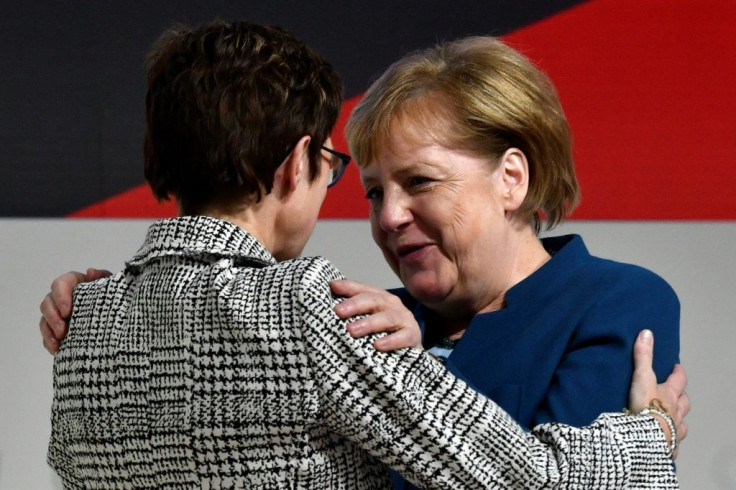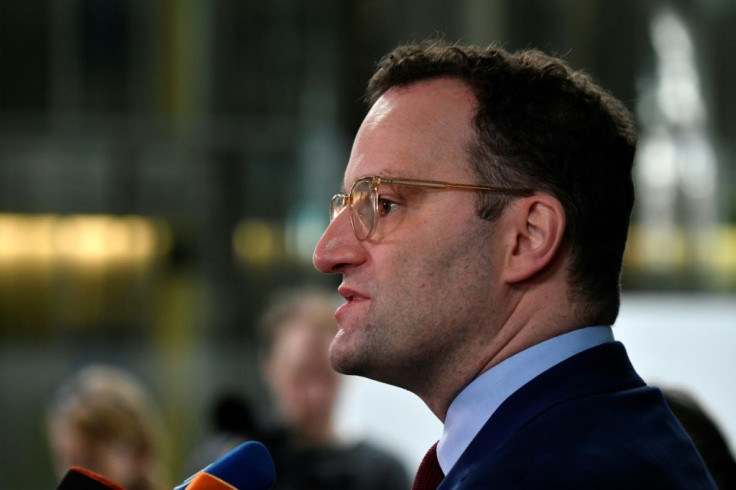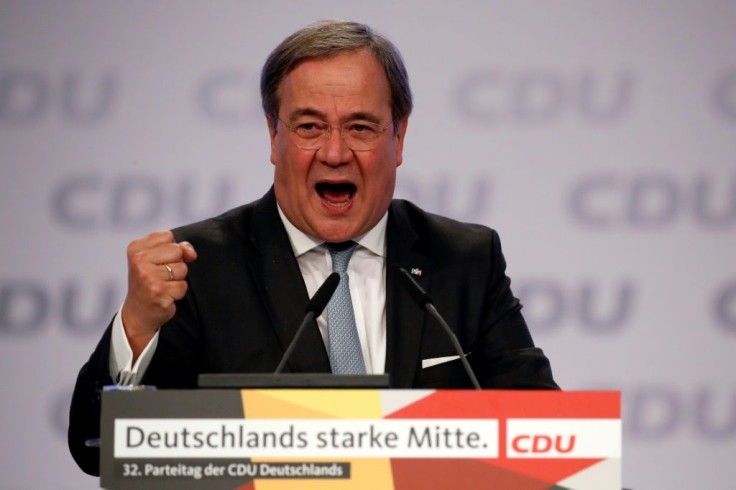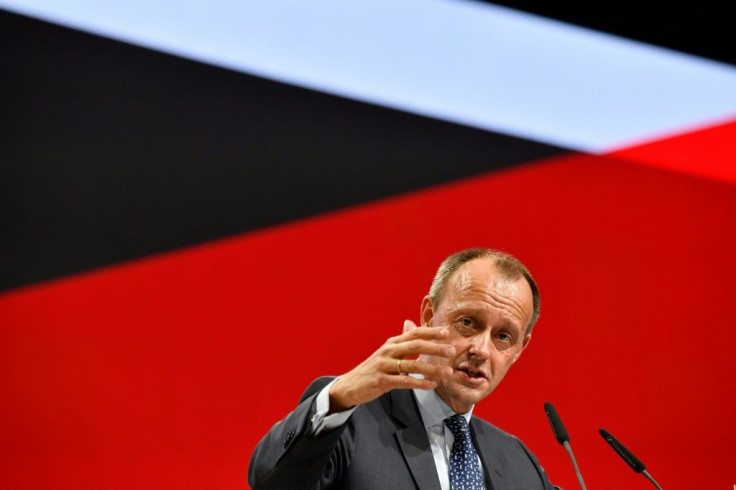German Conservatives Fire Starting Gun In Race To Succeed Merkel

The search for German Chancellor Angela Merkel's eventual successor begins in earnest this week, as her centre-right CDU party opens the race to elect a new leader after her heir apparent stepped down.
Annegret Kramp-Karrenbauer, who was Merkel's preferred successor, was toppled after just 14 months as CDU leader following a row over apparent cooperation with the far-right AfD party in a regional parliament.
The 57-year-old will hold talks this week with the three favourites to succeed her: long-time Merkel rival Friedrich Merz, Health Minister Jens Spahn and Armin Laschet, the premier of Germany's largest federal state North-Rhine Westphalia.
After Kramp-Karrenbauer failed to unite the party behind her, fears abound that the bid to find a worthy successor to Merkel could split the CDU, as the top candidates have differences in political direction.

After nearly two decades in which Merkel has positioned the CDU firmly in the centre, the race is set to be defined by differing visions of the party's future.
Merz and Spahn, both of whom ran against Kramp-Karrenbauer in the last leadership race, advocate a return to the party's conservative roots, while Laschet is more of a centrist like Merkel.
Merz, a 64-year-old former lawyer and board member at the German arm of investment firm BlackRock, called Merkel's government "unsustainable" and "abysmal" last November.

Ambitious 38-year-old Spahn, meanwhile, has combined social liberalism on issues such as gay marriage with a harder line on immigration.
Speaking to Bild on Sunday, the leader of the CDU's parliamentary youth wing Mark Hauptmann said a "team solution" between Merz and Spahn would be "ideal".
"They would speak to the conservative wing but also to the youth, and cover both rural and urban milieus," he said.
Though widely seen as the continuity candidate, 58-year-old Laschet criticised Merkel's European policy in a speech Sunday, calling for a "quicker and more decisive response" to French President Emmanuel Macron's EU reform proposals.

And some believe that cooperation between all three candidates may be the best way to keep the CDU united.
"The CDU needs all three, regardless of which roles they take," former CDU general secretary Ruprecht Polenz told Bavarian radio on Saturday.
The contest comes as the CDU struggles to fend off electoral pressure from the AfD to the right and the Green Party, which is soaring in the polls, to the left.
It has tumbled from 40 percent of the vote under Merkel in 2013 to poll at just 26 percent, according to an Infratest survey published last Thursday.
Leading conservative figures have warned that the party could lose further support if the leadership question is allowed to drag out.
"We need clarity, quickly," Alexander Dobrindt, the parliamentary leader of the CDU's Bavarian sister party CSU, told broadsheet Die Welt on Sunday.
Kramp-Karrenbauer herself has repeatedly said she wants the question of her succession to be resolved by the summer.
After this week's meetings with candidates, she will hold further talks with CDU grandees next Monday before agreeing a definitive time frame for her departure.
There may yet be another twist in the tale, however.
Kramp-Karrenbauer has called for her successor to also be named as the CDU and CSU's joint candidate for chancellor at the next elections.
Yet CSU leader Markus Soeder said Monday that he believes the two questions should be answered separately.
While the CSU would not meddle in the CDU leadership debate, Soeder said, "the question of the election candidate can only be answered together".
His comments will prompt speculation that the CSU leader favours a fourth prospective successor to Merkel: himself.
© Copyright AFP 2024. All rights reserved.





















